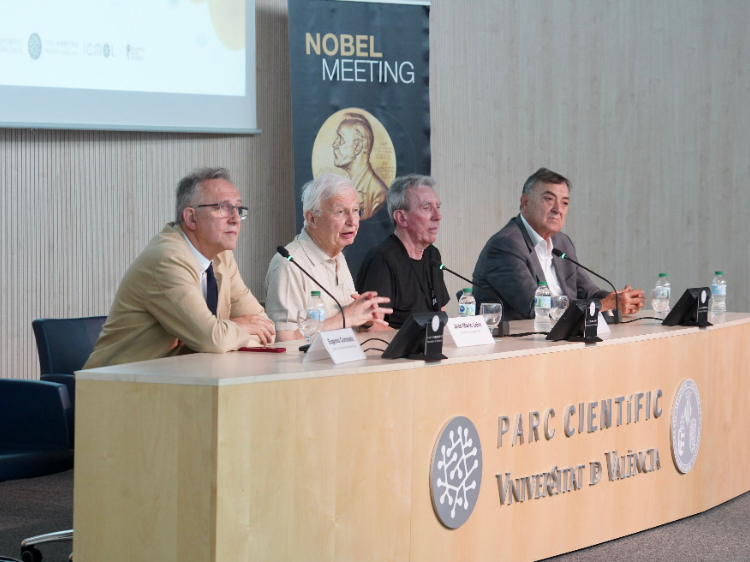
The Marie Curie Auditorium at the Parc Científic of the University of Valencia will host the traditional Nobel Colloquium on June, 5th, organised by the Institute of Molecular Science (ICMol) in collaboration with the Premios Rei Jaume I Foundation. The session will open at 10:30 am and will last two hours. Admission is free.
Both Nobel laureates are part of the juries that meet on 5th and 6th in Valencia to decide on the nominations for the Rei Jaume I Awards. The Nobel Colloquium is part of the parallel activities that bring science closer to teaching and research centres, among which ICMol has been very active in recent years. Professor Eugenio Coronado, director of ICMol, was awarded the Rei Jaume I Prize for New Technologies in 2003.
Jean-Marie Pierre Lehn (Nobel Prize in Chemistry, 1987) and Pierre Sauvage will participate in a two-hour talk with students and researchers open to all kinds of science-related issues: from the present and future of chemistry, to the European debate on the decarbonisation of the economy, renewable energies or the impact of Artificial Intelligence on the activity of people dedicated to science.
Professor Jean-Marie Lehn (Rosheim, France, 1939) won the Nobel Prize in Chemistry, together with Pedersen and Cram, for the development and use of molecules that interact with high selectivity. His research, focusing on supramolecular chemistry, led him in 1968 to the creation of a molecule capable of combining with the neurotransmitter acetylcholine, the chemical transmitter of signals in the nervous system.
Jean Pierre Sauvage is Emeritus Professor at the University of Strasbourg and Emeritus Director of Research at the Centre National de la Recherche Scientifique (CNRS). D. under the supervision of Jean Marie Lehn, his research group has been working on electrocatalysis, homogeneous catalysis and inorganic photochemistry, using different metal complexes of nickel, copper, etc.
From his initial research came the idea of preparing intertwined macrocycles using a metal as a template, which led to the synthesis of the first catenane and subsequently the first molecular knot, a chemistry developed over the last 40 years. In 2016 he received the Nobel Prize in Chemistry for his research on molecular machines, shared with Professors Sir Fraser Stoddart and Ben Feringa.

